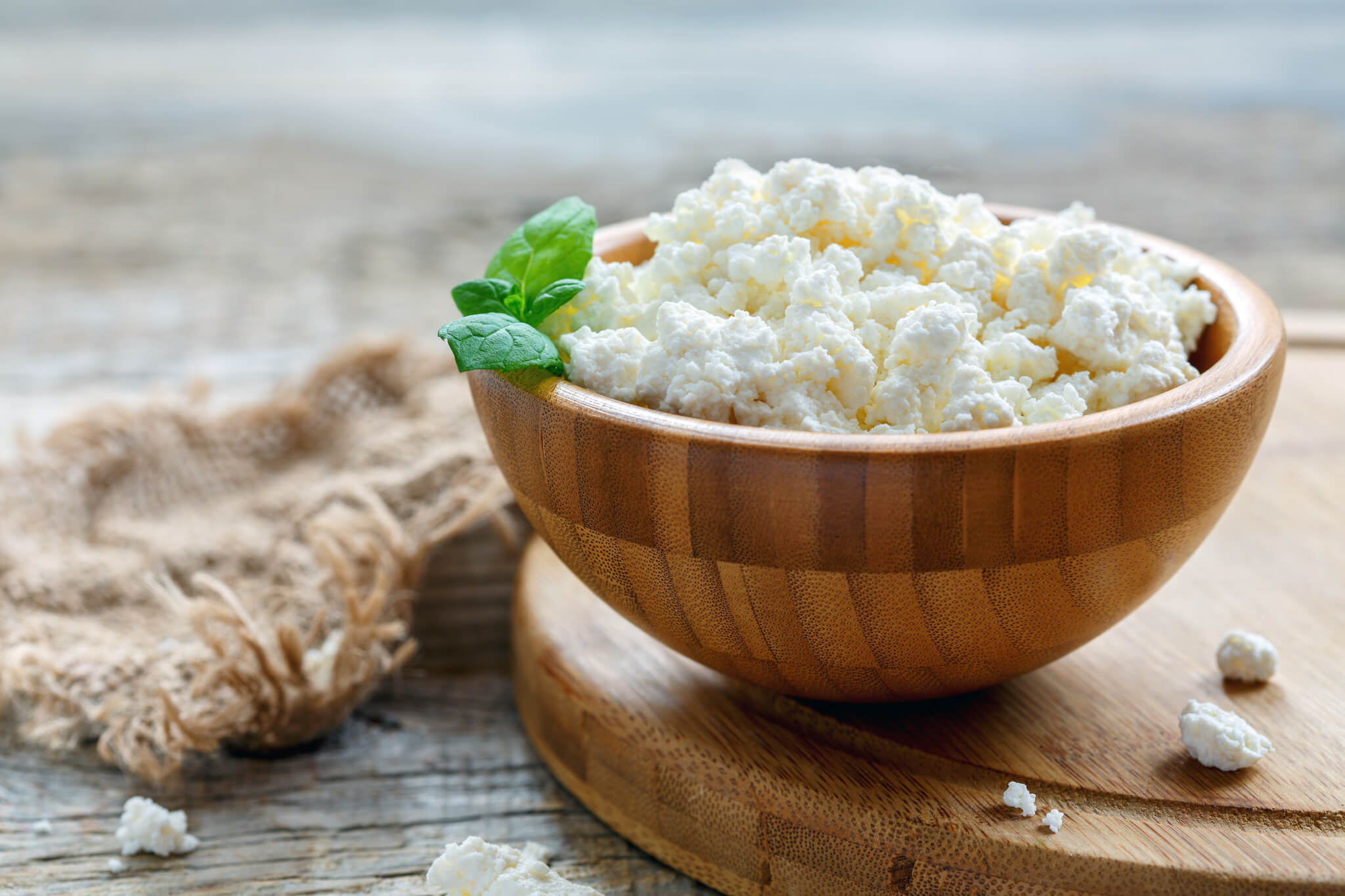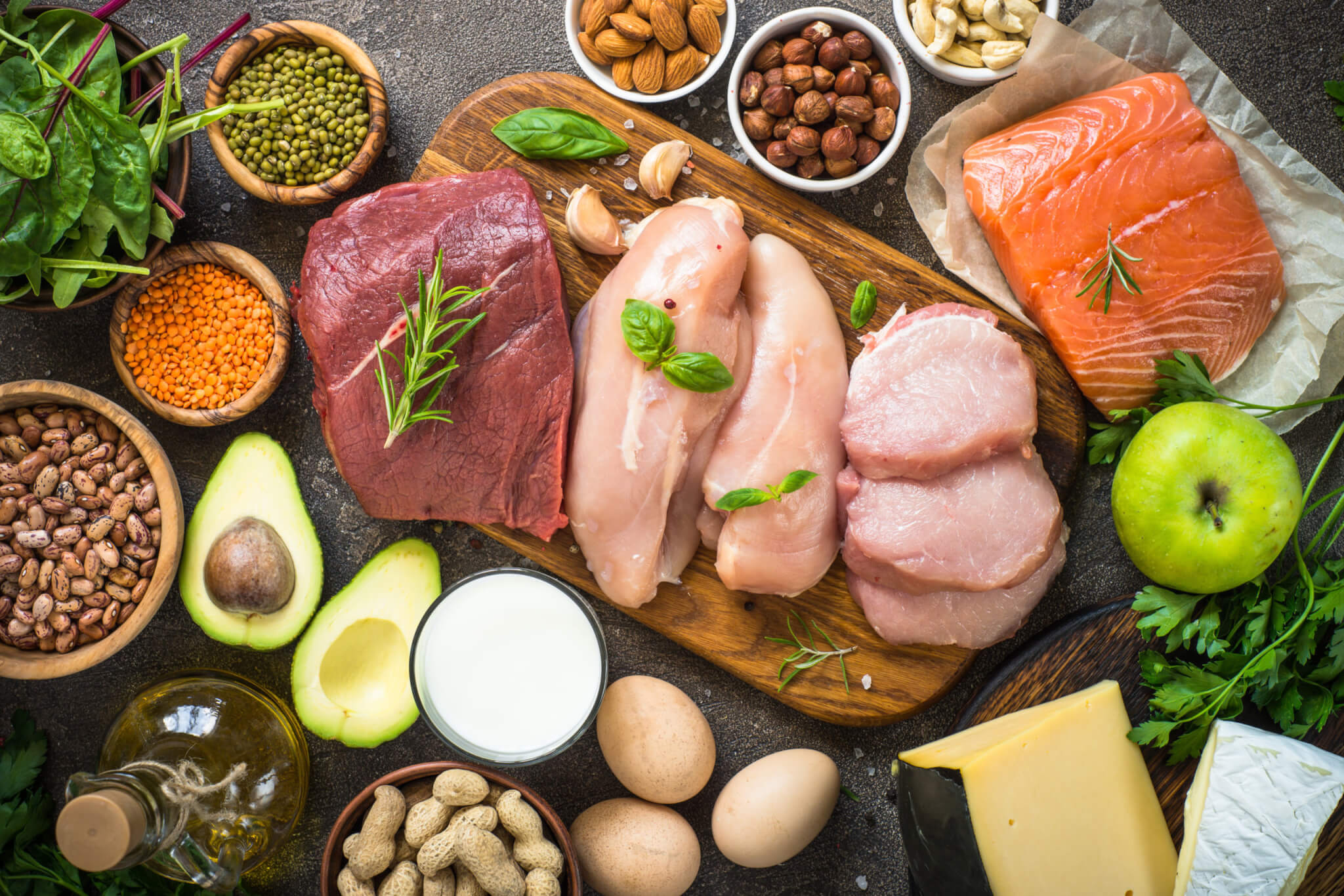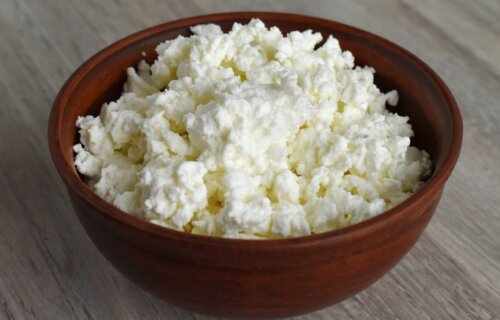There’s never a shortage of fads on TikTok. Over the last year, cottage cheese has had its spotlight in the wellness spaces. People are swapping it out for cream cheese, using it (and mustard) as a dip for chicken sausage, and even making high-protein chocolate chip cookie dough with it.
So, where’s all the hype coming from? That’s easy — it’s really healthy. Let’s break it down.
Cottage cheese is basically just fresh cheese. It’s similar to ones like ricotta, mozzarella, and feta. However, it’s not aged, like Romano or Parmesan, and you can tell by the mild flavor that it has in comparison.
Cottage cheese is made by adding an acid like vinegar to pasteurized milk to separate the milk solids from the whey. Once the curd forms, it’s carefully cut in order to let excess whey drain from the curds. The final product is then usually salted.
Cottage cheese used to be considered a “retro food,” being lumped into the same group as foods like ambrosia salad, okra, and ham macaroni salad. Millennials and Gen Z may have not wanted to try the curds when their grandmothers offered it to them, but that has changed drastically since the food has gained massive amounts of popularity on apps like TikTok.
Part of the excitement seems to stem from the fact that the last big dairy trend, Greek yogurt, has become a bit boring. Not only that, but it’s much tangier than cottage cheese, which has a mild flavor in comparison. People have found ways to spice it up by blending cottage cheese into a whip, using it to thicken their smoothies, or even making strawberry ice cream with it.
Personally, I’ve found that blending cottage cheese is the best use of it. The problem a lot of people have with cottage cheese is the texture and mouthfeel, which I can relate to.

Is cottage cheese healthy?
Unlike some other trends, I’m not mad that this one exists. Cottage cheese has a strong nutrition profile. Here’s how things line up in just a 1/2 cup serving of fat-free cottage cheese:
- 80 calories
- Around 4 grams of carbs
- 14 grams of protein
- Less than 1 gram of fat
You will also find that it provides vitamin B12, selenium, riboflavin, phosphorus, calcium, and folate. All things considered, it’s quite a balanced choice.
On social media, cottage cheese finally earned its seat at the “popular kids table” because it’s high in protein. Protein helps to keep you full, balance blood sugar, and maintain muscle, which can all support weight loss.

If you struggle with the idea of eating cottage cheese, you’re not alone. Here’s some approachable ways to start incorporating it in your diet if you’re looking to start:
Tuna salad – Blend it up nice and smooth before adding into your tuna and other mix-ins as a high-protein substitute for mayo.
Fruit and granola bowl – To help with the texture, try putting some cottage cheese into a bowl and topping it with fruit, granola, and honey.
Sour cream alternative – Don’t have any sour cream on hand? Blending cottage cheese works really well as a substitute.
Smoothies – My favorite combination has been frozen blueberries, frozen blackberries, banana, cottage cheese, and a little honey!
Scrambled eggs – A new hack that I have yet to try (but looks delicious) is adding a dollop of cottage cheese into scrambled eggs to make the texture extra creamy.
Bottom Line
Cottage cheese used to be considered old school, but now Gen Z is all over it. Cottage cheese has a mild flavor and lots of versatility, and TikTokers are loving it for a nutritious addition to their diets. However, just because it’s trending doesn’t mean you have to eat it. At the same time, it’s rich in protein and several key vitamins and minerals. If you do want to give it a try, there’s tons of fun ways to experiment with it.
You might also be interested in:
- Hungry at night? Study proclaims cottage cheese the ideal before-bed snack
- Could smoothies help save Americans from their less-than-nutritious diets?
- The best nutrient to lower cholesterol is…
